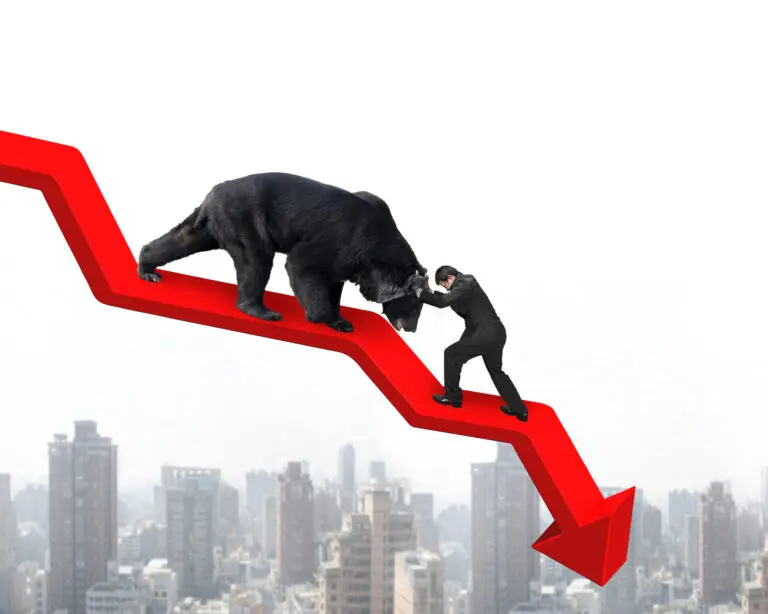
A US RECESSION: IS IT JUST ANOTHER SCARE?
In the last few weeks, talks of US recession have become louder. It began with the Atlanta Fed GDP, which changed its forecast of projected Q2CY25 GDP from +2.4% to -2.8%. The recession concerns have a lot to do with Trump tariffs, which was already implemented for Canada, Mexico, and China. Tariffs will be expanded to the EU, India, and other nations in a phased manner, with reciprocal tariffs likely to hit most countries trading with the US.
The warning signals are already there in the stock markets with the diversified S&P 500 falling over 10% from the peaks and the tech-laden NASDAQ falling 14% from peak levels. Generally, the stock markets have been a fairly reliable barometer of the economy. The concerns are not without reason. Q4 GDP growth in 2024 was already sharply lower than Q4 of 2023. The story is likely to get worse in 2025; that is what markets expect.
WHAT HAS RAKED UP RECESSION FEARS IN THE US?
To be fair, the story has been doing the rounds since last 2 years, but has just got more legs after the series of policy shifts announced by Trump. Here is a quick dekko.
Let us turn to what the data tells about a possible US recession.
SEVERAL DATA POINTS HINT AT SLOWDOWN IN THE US
A recent report by SBI Research has hinted at several indicators that may support the contention of a slowdown in the US. Here are a few such indicators.
What could be the implications of a US slowdown for India?
INDIA WILL BE HIT BY A US SLOWDOWN
There is no rocket science. India is likely to be hit hard if there is a US recession, although such an impact may be temporary. However, the impact on the stock markets is likely to be quite sharp. While the stock markets are divorced from GDP calculations, stock market losses are likely to hit consumption patterns, especially among the higher income groups. On the positive side, the tariffs may open up opportunities for boosting metal exports to the US. However, the concern will be on the IT front, where the signals are of slowing tech spending. That could hit India quite hard!
Related Tags

![]() IIFL Customer Care Number
IIFL Customer Care Number
(Gold/NCD/NBFC/Insurance/NPS)
1860-267-3000 / 7039-050-000
![]() IIFL Capital Services Support WhatsApp Number
IIFL Capital Services Support WhatsApp Number
+91 9892691696
IIFL Capital Services Limited - Stock Broker SEBI Regn. No: INZ000164132, PMS SEBI Regn. No: INP000002213,IA SEBI Regn. No: INA000000623, SEBI RA Regn. No: INH000000248, DP SEBI Reg. No. IN-DP-185-2016, BSE Enlistment Number (RA): 5016
ARN NO : 47791 (AMFI Registered Mutual Fund & Specialized Investment Fund Distributor), PFRDA Reg. No. PoP 20092018

This Certificate Demonstrates That IIFL As An Organization Has Defined And Put In Place Best-Practice Information Security Processes.